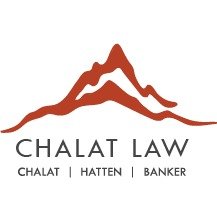Best Accidents & Injuries Lawyers in Denver
Share your needs with us, get contacted by law firms.
Free. Takes 2 min.
List of the best lawyers in Denver, United States
United States Accidents & Injuries Legal Articles
Browse our 1 legal article about Accidents & Injuries in United States written by expert lawyers.
- What to Do After a Serious Car Accident in the US: A Legal Step-by-Step Guide
- Call 911, get medical help, and do not admit fault. Photograph the scene, vehicles, and your injuries, and get witness names and the officer's report number. Report the crash to your insurer quickly. In no-fault states, PIP deadlines are short (e.g., Florida requires initial treatment within 14 days; New York... Read more →
About Accidents & Injuries Law in Denver, United States
In Denver, United States, the law pertaining to accidents and injuries, otherwise known as personal injury law, covers situations where an individual suffers physical, mental, or emotional injury due to the negligence, carelessness or intentional infliction of another individual or entity. This may include cases involving automobile accidents, slips and falls, workplace injuries, medical malpractice, premises liability, product defects, and assault.
Why You May Need a Lawyer
An accident or an injury can result in extensive medical bills, wage losses, and life-altering changes. You might need a personal injury lawyer if you have suffered significant injuries or if the legal rules implicated in your accident are complex. Insurance companies often have their own lawyers and it is important to level the playing field by having a knowledgeable advocate on your side to negotiate for you, or represent you in court, to ensure you get the compensation you deserve.
Local Laws Overview
Denver observes Colorado's personal injury laws. The key factors include the Modified Comparative Negligence rule where you can be eligible for compensation even if you are 50% or less at fault. There is also a two-year statute of limitations for personal injury cases. However, for motor vehicle accidents, this is extended to three years. In the case of claims against the government, the statute of limitations is further reduced to 180 days, under the Colorado Governmental Immunity Act.
Frequently Asked Questions
1. What is the average settlement for a personal injury case in Denver?
The settlement for personal injury cases can vary greatly based on factors such as the severity of the injury, long-term impacts, liability, and the amount of insurance coverage available.
2. Can I file a claim if I'm at fault?
Under the Modified Comparative Negligence rule, you can be eligible for compensation even if you are 50% or less at fault. However, your compensation will be reduced by your percentage of fault.
3. How long do I have to file a lawsuit?
The general statute of limitations for personal injury cases in Denver is two years. However, for motor vehicle accidents, it's three years. Bear in mind that different rules apply if your claim is against the government.
4. What types of damages can I recover?
You can recover economic damages (medical expenses, lost wages, etc.), non-economic damages (pain and suffering, emotional distress, etc.), and in some cases, punitive damages that are intended to punish the wrongdoer.
5. Do I have to go to court to receive compensation?
Not necessarily. Many personal injury claims get resolved through negotiations and settlements without having to go to trial.
Additional Resources
You may find the Denver Bar Association Lawyer Referral Service, Colorado Legal Services, and the Colorado Judicial Branch's Self-help Centre as useful resources. Checking out the Colorado Bar Association's resources can also help.
Next Steps
If you need legal assistance, consider seeking a consultation with a personal injury lawyer. Gather all the relevant documents and information related to your accident or injury. This may include medical records, police reports, and photos or videos of the incident. Be open and honest with your attorney to help them adequately represent you in your case.
Lawzana helps you find the best lawyers and law firms in Denver through a curated and pre-screened list of qualified legal professionals. Our platform offers rankings and detailed profiles of attorneys and law firms, allowing you to compare based on practice areas, including Accidents & Injuries, experience, and client feedback.
Each profile includes a description of the firm's areas of practice, client reviews, team members and partners, year of establishment, spoken languages, office locations, contact information, social media presence, and any published articles or resources. Most firms on our platform speak English and are experienced in both local and international legal matters.
Get a quote from top-rated law firms in Denver, United States — quickly, securely, and without unnecessary hassle.
Disclaimer:
The information provided on this page is for general informational purposes only and does not constitute legal advice. While we strive to ensure the accuracy and relevance of the content, legal information may change over time, and interpretations of the law can vary. You should always consult with a qualified legal professional for advice specific to your situation.
We disclaim all liability for actions taken or not taken based on the content of this page. If you believe any information is incorrect or outdated, please contact us, and we will review and update it where appropriate.
Browse accidents & injuries law firms by service in Denver, United States
Denver, United States Attorneys in related practice areas.









